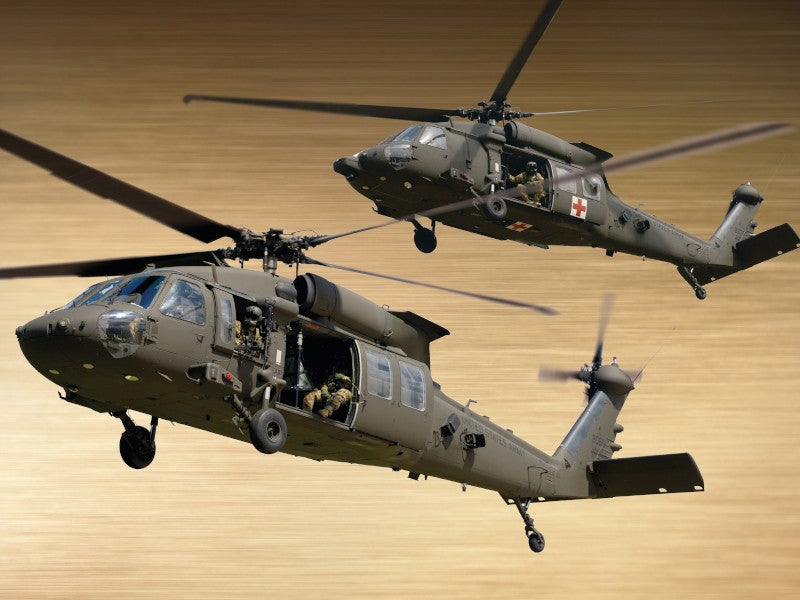UH 60 Black Hawk Helicopter Variations and Their Uses
UH 60 Black Hawk Helicopter Variations and Their Uses
Blog Article
The Influence of Lasting Practices on the Future of Airplane Procedures and Emissions Reduction
As the aviation market encounters raising examination over its environmental effect, the adoption of lasting practices emerges as a critical pathway towards future aircraft operations and emissions decrease. Advancements in lasting aeronautics fuels and developments in crossbreed propulsion technologies stand at the leading edge of this improvement, appealing considerable decreases in greenhouse gas exhausts.

Review of Sustainable Practices
Lasting practices in aircraft operations include a variety of techniques focused on reducing environmental impact while preserving functional effectiveness. These techniques are vital in the aeronautics sector's dedication to minimizing its carbon footprint and sticking to worldwide environmental standards. Key campaigns include optimizing trip paths to decrease gas intake, boosting maintenance protocols to guarantee airplane run at peak performance, and carrying out innovative technologies such as winglets and lightweight products that enhance aerodynamics.

Educating and involving personnel on sustainability practices additionally play an essential function, cultivating a society of environmental responsibility within organizations. Overall, the assimilation of these sustainable methods not just aids decrease exhausts however additionally enhances the long-lasting feasibility of the air travel field, ensuring it fulfills the demands of both consumers and governing bodies while contributing to worldwide sustainability objectives.
Innovative Gas Alternatives
Many cutting-edge gas choices are becoming pivotal remedies to reduce the air travel sector's reliance on conventional nonrenewable fuel sources. Among these alternatives, Lasting Air travel Gas (SAFs) have actually obtained substantial focus because of their possible to decrease lifecycle greenhouse gas discharges by as much as 80% compared to standard jet fuels. SAFs are stemmed from various feedstocks, including waste oils, farming residues, and also algae, making them a functional alternative for the sector.
An additional promising option is hydrogen fuel, which, when used in fuel cells, produces only water vapor as a byproduct. In addition, electrical propulsion systems are being explored, leveraging battery technology to power airplane.
Lastly, biofuels originated from biomass are being checked out, using an eco-friendly choice that can be blended with standard gas. Jointly, these cutting-edge gas alternatives stand for a vital step toward accomplishing a sustainable aviation ecological community, straightening with global discharges decrease targets and boosting the sector's environmental stewardship.
Technical Improvements in Aviation

How can technological improvements improve the future of aeronautics? The integration of cutting-edge technologies is crucial in changing airplane procedures, boosting effectiveness, and reducing discharges. Developments such as electric and hybrid propulsion systems go to the leading edge, encouraging substantial reductions in fuel intake and greenhouse gas discharges. These systems utilize advancements in battery innovation and power management, making it possible for airplane to run with a reduced ecological footprint.
In addition, the implementation of advanced materials, such as lightweight composites, adds to boosted the rules of aerodynamics and gas effectiveness. The usage of expert system and artificial intelligence in trip operations optimizes route preparation and decreases gas shed by enabling real-time modifications based on weather condition and website traffic problems. In addition, the advancement of independent and from another location piloted aircraft systems stands to revolutionize cargo and passenger transportation, possibly increasing effectiveness while decreasing human error.
Furthermore, sustainable aeronautics innovations, consisting of sophisticated air traffic administration systems, can simplify operations and reduce congestion, leading to reduced emissions throughout flight. These developments collectively represent a paradigm shift in aviation, guaranteeing a future where sustainability and functional efficiency are linked, consequently supporting the sector's dedication to minimizing its environmental impact.

Regulative Structure and Compliance
Because of the expanding focus on environmental stewardship within the air travel market, the regulative framework controling aircraft procedures is advancing to advertise sustainable techniques. Regulative bodies, such as the International Civil Aviation Company (ICAO) and various nationwide air travel authorities, are introducing strict guidelines targeted at reducing discharges and improving operational performance.
These laws often include the adoption of Lasting Aviation Gas (SAF), which has been recognized as a vital part in accomplishing reduced carbon impacts. Compliance with these regulations requires airline companies to execute innovative innovations and functional techniques, such as enhanced trip courses and boosted air website traffic administration, to lessen fuel usage.
Additionally, the enforcement of emissions trading schemes and carbon balancing out campaigns is ending visit our website up being significantly prevalent, engaging airline companies to monitor and report their exhausts precisely. Non-compliance can result in substantial fines, thus pressing drivers to focus on sustainability in their company versions.
Inevitably, the progressing regulative landscape not just drives advancement and financial investment in green innovations but also cultivates a culture of responsibility within the aviation sector. As these structures remain to establish, the concentrate on sustainable practices will certainly be integral to attaining the field's lasting environmental objectives.
Future Patterns in Airplane Workflow
As the air travel industry adapts to an increasingly strict governing atmosphere, future trends in airplane operations are readied to concentrate on innovative services that even click this link more improve sustainability and performance - uh 60. Trick developments will likely include the fostering of innovative air web traffic monitoring systems, which utilize real-time data and expert system to maximize flight courses, lowering gas intake and exhausts
Another substantial pattern is the boosted integration of sustainable air travel fuels (SAFs) These alternatives to conventional jet fuel, originated from sustainable resources, can dramatically reduce lifecycle greenhouse gas discharges. The market's dedication to SAFs will likely increase as airlines work together with fuel producers to make certain availability and cost-effectiveness.
In addition, the push in the direction of electrification and hybrid propulsion systems is acquiring energy. Arising aircraft styles will incorporate these innovations, supplying quieter and more efficient operations, particularly for short-haul flights.
Conclusion
The adoption of sustainable aeronautics fuels, paired with innovations in hybrid and electrical propulsion systems, is vital for lessening lifecycle greenhouse gas emissions. Maximizing flight paths and accepting ingenious technologies contribute to a quieter and much more environmentally pleasant air travel market.
Developments in lasting aviation gas and innovations in hybrid propulsion innovations stand at the forefront of this change, encouraging considerable reductions in her comment is here greenhouse gas emissions.Many innovative fuel options are emerging as pivotal remedies to decrease the air travel industry's dependence on standard fossil gas - uh 60. Among these choices, Lasting Aviation Fuels (SAFs) have actually obtained significant attention due to their possible to lower lifecycle greenhouse gas emissions by up to 80% compared to traditional jet gas.An additional considerable pattern is the boosted integration of sustainable aeronautics fuels (SAFs) The fostering of sustainable aviation fuels, combined with improvements in electrical and hybrid propulsion systems, is essential for minimizing lifecycle greenhouse gas emissions
Report this page